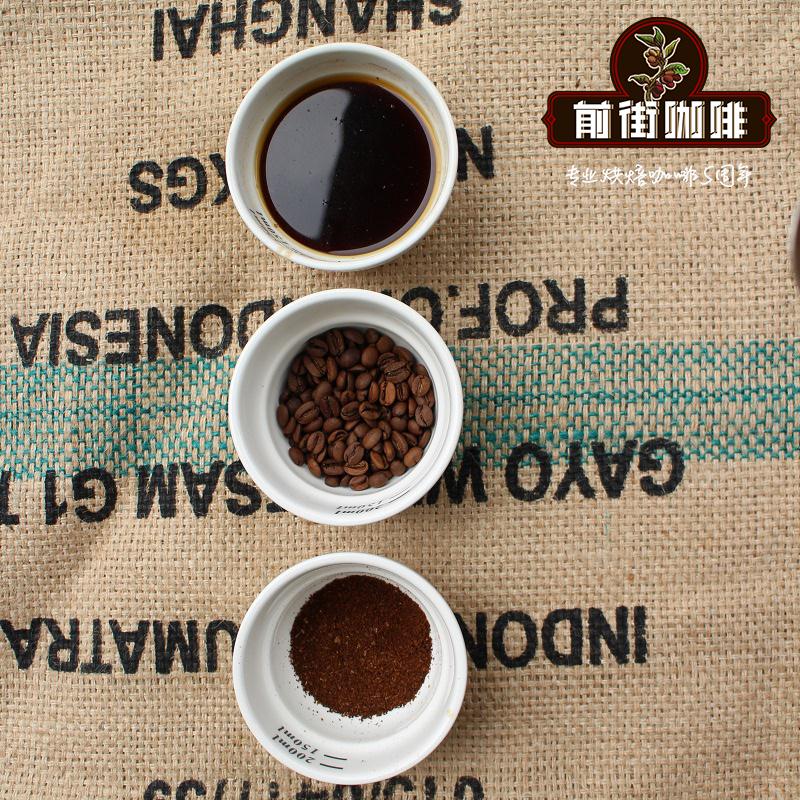Introduction to the Origin of Coffee in Yunnan small Coffee Plantation
Yunnan's high-quality geographical and climatic conditions provide good conditions for the growth of small-grain coffee. The planting areas are Lincang, Baoshan, Simao, Xishuangbanna, Dehong and other prefectures.
Dehong Hougu Coffee Co., Ltd. is better in the Science and Technology Museum, No. 1 Cuihu West Road, Kunming, Yunnan Province.
Small-grain coffee is suitable for growing in the mountains at an altitude of 800 to 1800 meters. If the altitude is too high, it will taste sour, and if it is too low, it will taste bitter. Small grains of coffee are mostly planted in dry and hot valleys about 1100 meters above sea level, so they are moderately sour, rich and mellow. There is a unique environment suitable for the growth of small seed coffee in many areas of Yunnan, and the quality of small seed coffee is excellent.
The planting areas are mainly distributed in Lincang, Baoshan, Simao, Xishuangbanna, Dehong, Nujiang and other states.
Yunnan small-grain coffee, Rubiaceae, coffee genus, the planting area is mainly distributed in Lincang, Baoshan, Simao, Xishuangbanna, Dehong, Nujiang and other states. [1] small grains of coffee are native to Ethiopia or Arabian Peninsula. It is cultivated in Fujian, Guangdong, Hainan, Guangxi, Sichuan, Guizhou and Yunnan. Superior geographical conditions make the coffee industry in Yunnan develop rapidly. In 2014, both planting area and output accounted for more than 99% of the country's total.
The main planting sites are also concentrated in Dehong Lincang and Pu'er Banna in Baoshan, western Yunnan. The coffee introduced by missionaries in the 19th century was mainly Robusta, but it was no longer planted on a large scale. In the 1950s, experts assisted by the Soviet Union brought two mainstream Arabica varieties: iron pickup typica and bourbon bourbon to Baoshan, Yunnan, for cultivation and promotion, which was well received. Later, due to the special period, Scientific research and cultivation tends to stagnate. After the reform and opening up, thanks to the efforts of local agricultural experts, the variety of iron pickup cultivated by Baoshan state-run Lujiang Farm and Xincheng Youth Farm also won the first place in the international coffee competition. However, people's awareness of coffee, so that we do not increase too much interest in planting. Since the early 1990s, in order to improve the enthusiasm of farmers, Baoshan Rezuo has introduced a Katim variety bred by the Portuguese Coffee Rust Research Center with Timor (medium grain, Tim) and Caturra (small grain, Kaddura), and has been popularized and planted with numerous titles. This variety has solved many factors such as disease and insect disasters and drought resistance, and the important thing is that the yield per mu has nearly doubled. Although it has increased the enthusiasm of farmers to grow coffee, it has also become the reason for the low quality of Yunnan coffee from now on. At the same time, Nestl é and Maxwell entered China and began to promote coffee varieties suitable for instant coffee in Pu'er and other places: S288, natural hybrid of large seed and small seed and S26 of kent hybrid of Arabica Kent in India, which had first-class rust resistance, but the planting difficulty and adaptability were low, and the cultivation was basically stopped at the beginning of the 20th century.

Important Notice :
前街咖啡 FrontStreet Coffee has moved to new addredd:
FrontStreet Coffee Address: 315,Donghua East Road,GuangZhou
Tel:020 38364473
- Prev

Kenya PB Kenya Coffee grading system
Professional coffee knowledge exchange more coffee bean information please follow the coffee workshop (Wechat official account cafe_style) Kenya coffee grading system is set up under the government-led policy of managing quality and mentoring coffee farmers. After the coffee is harvested, the official unit set up by the government, the Kenya Coffee Agency (Coffee Board of Kenya referred to as CBK), was established in 1933.
- Next

An introduction to the characteristics of the nine boutique producing areas in Ethiopia
Nine boutique producing areas in Ethiopia: Yega Xuefei (boutique producing areas): 1800-2000 meters above sea level | Pastoral Coffee system | Yega Xuefei is affiliated to the Sidamo producing area, so it is separated separately because of its unique flavor. In addition to the small town of Yega Xuefei, it also includes three by-product areas around Wenago, Kochere, Gelena and Abaya. So the new Yega Xuefei
Related
- Detailed explanation of Jadeite planting Land in Panamanian Jadeite Manor introduction to the grading system of Jadeite competitive bidding, Red bid, Green bid and Rose Summer
- Story of Coffee planting in Brenka region of Costa Rica Stonehenge Manor anaerobic heavy honey treatment of flavor mouth
- What's on the barrel of Blue Mountain Coffee beans?
- Can American coffee also pull flowers? How to use hot American style to pull out a good-looking pattern?
- Can you make a cold extract with coffee beans? What is the right proportion for cold-extracted coffee formula?
- Indonesian PWN Gold Mandrine Coffee Origin Features Flavor How to Chong? Mandolin coffee is American.
- A brief introduction to the flavor characteristics of Brazilian yellow bourbon coffee beans
- What is the effect of different water quality on the flavor of cold-extracted coffee? What kind of water is best for brewing coffee?
- Why do you think of Rose Summer whenever you mention Panamanian coffee?
- Introduction to the characteristics of authentic blue mountain coffee bean producing areas? What is the CIB Coffee Authority in Jamaica?

